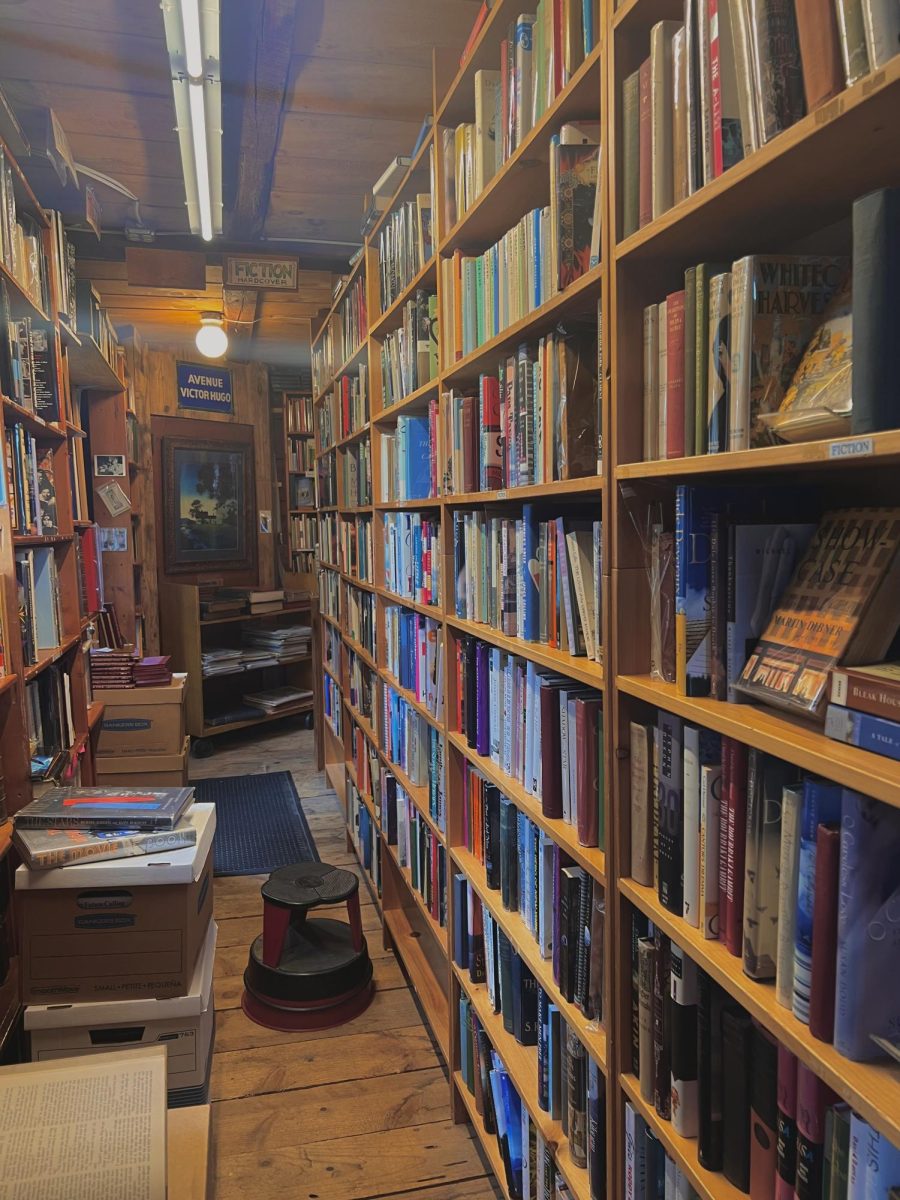It’s not easy teaching a subject like poetry to career-focused college students, unless that happens to be the career they are looking to go into, which is rare at UNH.
According to English Professor David Rivard, “Technically, there’s no ‘major’ in poetry at UNH, but many poets have worked in marketing and publishing, as well as, of course, being doctors, lawyers, insurance company executives and social activists.”
English Professor Jerome Daly said, “Obviously there’s the opportunity to teach if you have an advanced degree (MFA/PhD) but having a background in creative writing helps students to pursue jobs in so many other areas. The skills of critical thinking and use of the imagination are attributes many employers look for; they could go into marketing, editing, or work for a university or non-profit, but could also get a job as a server or bartender, which then gives them time to write.”
“Much of the culture we live in wants us to be asleep and compliant, to live without awareness. Writing and reading poetry is a way of waking yourself up, a way that’s both disciplined and pleasurable. Chekhov said that a writer writes to ‘squeeze the slave’s blood out of himself until he wakes one day to find the blood of a real human being–not a slave’s–coursing through his veins.’ That sounds good to me. I’m just trying to wake up, before it’s too late,” Rivard said.
“I think the importance of poetry has to do with the power and mystery it brings, but also how it enriches our lives. Poetry makes everything else around us stop, gives us a pause from the hustle and bustle of everyday life—and we are present in the moment to see and listen. Listen to the sounds and the rhythms that a poem provides, and then see how images and language surprise us and touch us. It is a unique experience for every individual, which in turn changes as we change. In education I think it’s important because it lets students develop a greater appreciation for language and also, when studying poets from the early 20th Century, a unique voice about our past. For students, there’s also this element of surprise. I tell my students that when writing poetry, it is the experience that matters – you know, there’s that moment when you have no idea what you are going to write about, and then something unexpected comes out. It’s a great and sometimes terrifying feeling,” Daly said.
Speaking about his experiences as a poetry professor, Rivard said, “Good experiences have to do with bringing students alive to their imaginations, to the ways in which language gives access to that part of ourselves. Also, I like altering peoples’ destinies by turning them into poets. I guess the bad moments occur when a student is just killing time and indifferent in class. I like being in contact with people who are just beginning to write and read seriously – they have what the Zen masters call ‘beginner’s mind,’ and that’s a great thing to be in touch with if you are an artist or writer. Many things are possible for the beginner, and it’s good to be reminded of that if you’ve been writing for a long time.”
“I’ve never had a bad experience, but I think that I’m lucky to see the excitement and energy that students bring into the classroom every day and witness the dramatic changes in their writing over the course of the semester,” Daly said.
“I was a non-traditional student – believe it or not, I never thought that I’d graduate college, never mind work on a graduate degree. But, I’m a teaching fellow and second-year MFA candidate in poetry,” Daly said, referring to how he became a poetry professor. “I initially started my undergrad degree in business, then took an Intro to Lit course and rediscovered literature and poetry, then started writing, so it’s almost like poetry, in a way, chose me. If you had told me six years ago this is what I’d be doing, I would have said you’re crazy, but I can’t imagine doing anything else,” he said.
“Most poets who teach in college are not teaching literary analysis, which may be what students think of when they think of their high school experience with poetry. I’m not interested in having a student analyze what a poem ‘means,’ I’m interested in what it makes her think or feel, and teaching them about how it does that through language,” Rivard said.
“I wouldn’t be the person I am today without poetry, but also I think the big thing is that I am not myself unless I’m writing. It’s kind of strange, I need to go into this creative world to find out more about who I am. But when it comes to reading poetry, it makes me look at the world in a different way, makes me listen to people, takes me out of my comfort zone, touches me in a way that words can’t explain,” Daly said.
“I’ve been writing some poems about ‘surveillance’ technology, digital technology in general, and how we experience it every day in our lives without being all that aware of it, how it changes our behavior and our states of mind,” Rivard said in reference to his research. “I’m just trying to write about it from the ground up, not in any theoretical way. I’m interested in our electronic devices, and how they shape us. They’re not just tools or conveniences, they’re remaking us,” he said.
“Right now I’m not doing any specific research per se, you see, as an MFA candidate I’m in the midst of working on my own thesis/manuscript,” Daly said of his own work. “But with our form and technique [graduate] classes, we do delve into different aspects of poetry,” he said.




















